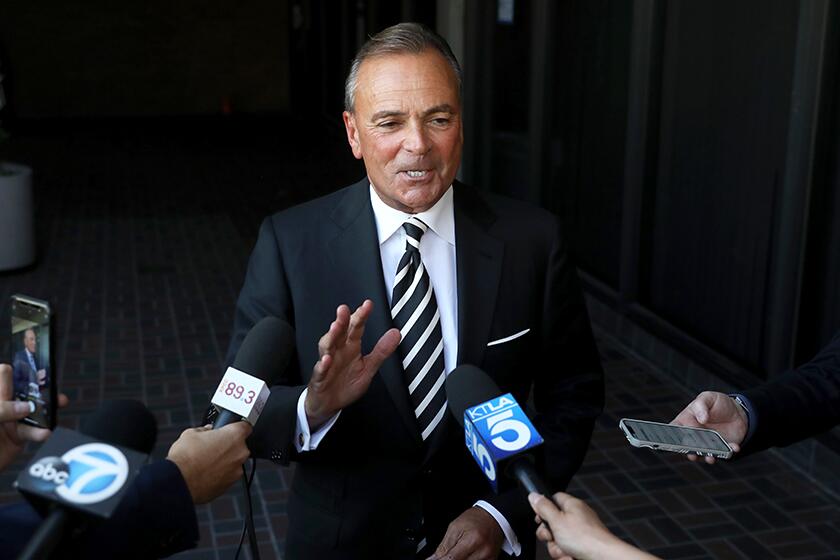Access to school data finds support
- Share via
SACRAMENTO — Gov. Arnold Schwarzenegger, who says parents should be able to scrutinize schools on the Internet like they are “shopping for a car,” received a political boost Thursday with a new poll showing widespread support for opening the financial books at public schools.
With the Legislature beginning its new session Monday, the survey, sponsored by the nonprofit group Children Now, was designed to give Schwarzenegger and lawmakers ammunition next year as they attempt to put more information about the state’s 9,500 public schools on the Web.
Schwarzenegger wants large amounts of data -- from enrollment numbers and school test scores to reports on the quality of textbooks and individual school budgets -- to be posted online in a user-friendly way.
“Let the sun shine in on everything,” the governor said recently at a news briefing, describing how the state should “make it easier for parents to shop for the best schools,” as he put it, and shame poor-performing schools so “they’ll be getting their act together.”
The Children Now statewide poll, conducted in early November, showed 85% of those surveyed support “better and more accessible information so we can understand how specific classrooms are performing.” Ninety-one percent were in favor of “requiring better and more accessible information so we can understand how well our own local schools are performing.”
California collects a vast amount of information about its schools and how they perform, but much of it remains in the files of the Department of Education or in school computers, and some of it could be indecipherable to parents.
The idea of putting the information on the Internet has met with resistance from schools, in part because it would be expensive to compile it all into a reader-friendly format. In addition, some schools already feel pressured by performance rankings that are put up to public scrutiny and worry that parents would question every purchase a principal makes.
“Does this mean folks are going to see things that are a problem? Are folks going to be embarrassed? Sure,” said Ted Lempert, a former assemblyman who is president of Children Now, a research group based in Oakland. “But overall I think when people get in there, they will start seeing there is a lot less fluffing [of the budgets] than people thought.”
Last year, Schwarzenegger vetoed legislation sponsored by state schools Supt. Jack O’Connell that would have put detailed reports about individual schools online, saying he wanted a comprehensive overhaul of the School Accountability Report Card system. Now, Schwarzenegger is expected to offer his own plan for next year.
“All of this information should be available as much as when you go today shopping for a car,” Schwarzenegger said. “You can go on the Internet and you can go and compare the horsepower, the price, the speed, what the warranty policies are, the colors, all of those kind of things you can compare. But in the school system, we don’t open up the books.”
The governor’s idea would require a two-thirds vote of the Legislature, because the existing school report card law was created by an initiative, Proposition 98. The law requires the Department of Education to generate reports listing student achievement tests, dropout rates, budget information, the availability of qualified substitute teachers and “the assignment of teachers outside their subject area of competence,” among numerous requirements.
Schwarzenegger generally has been supportive of making government records easily available to the public, although he reneged on a 2003 campaign promise to release e-mails from his administration, and he denies media access to information from his office that is considered part of the deliberative process of governing.
But Schwarzenegger has signaled that he wants more information available, for example, on how law enforcement operates. Last year, he vetoed legislation, SB 171, that would have required interrogations of violent-crime subjects to be electronically recorded, but he left the door open for a more transparent system.
“I support the concept of this bill,” the governor said, “and I would encourage the Legislature to work with law enforcement in order to send me a bill that helps ensure the reliability of confessions while not creating opportunities for those guilty of violent crimes to avoid punishment because of a technical loophole.”
To read Salladay’s “Political Muscle” blog about the governor and California politics, go to latimes.com/calpolitics.
More to Read
Sign up for Essential California
The most important California stories and recommendations in your inbox every morning.
You may occasionally receive promotional content from the Los Angeles Times.










